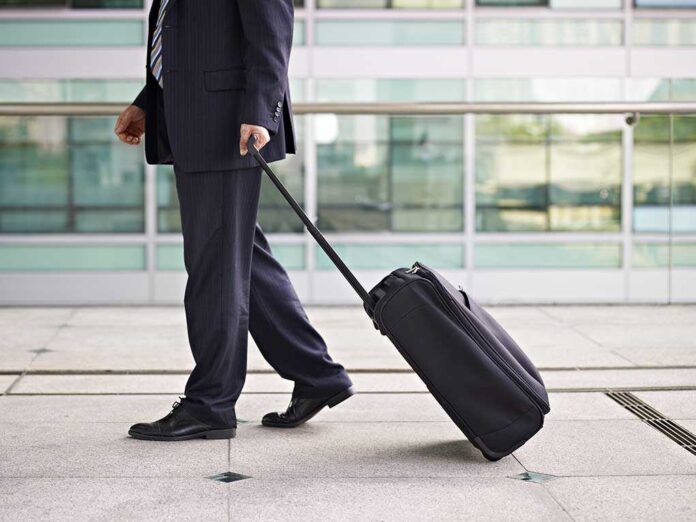
Unlocking real rest and recovery during business trips could be your secret weapon for success.
Story Overview
- Business travel can be draining, countering the glamorous perception.
- Rest and recovery are essential for maintaining peak performance.
- Strategic downtime can enhance decision-making and creativity.
- Implementing recovery strategies can transform travel into an opportunity for resilience.
Challenges of Business Travel
Business travel often loses its allure once the reality of long flights, disrupted sleep, and constant stimulation sets in. The glamorous image of exploring new destinations and exciting opportunities quickly fades as exhaustion takes over. Over time, this leads to depleted energy levels, affecting decision-making and creativity. Rest and recovery aren’t just nice-to-haves on work trips; they are critical components for sustaining productivity and well-being.
To maintain peak performance, consider integrating real rest and recovery into your travel routine. This article offers practical advice from a seasoned traveler who manages to stay rejuvenated despite a demanding schedule.
Reconnect to Recharge
During a recent trip to Sydney, the temptation to dive straight into work was strong. However, recognizing the need for energy management, the choice was made to recharge by enjoying a walk, opting for healthier food choices, and soaking in the environment. This wasn’t merely “time off work” but a deliberate effort to manage energy levels. Recovery should be treated as an integral part of the trip rather than an afterthought squeezed between meetings.
Strategic downtime is essential. Prioritize rest as part of your travel agenda, just like meetings, to maintain focus and emotional intelligence. Protect your sleep fiercely, and consider it as crucial as any meeting. Quality rest is a powerful productivity tool that shouldn’t be overlooked.
Practical Recovery Tips
Redefine downtime as a leadership strategy. Treat recovery as a strategic move rather than a passive break. Leaders who prioritize well-being know that rest fuels focus, emotional intelligence, and decision-making. Before your next trip, plan recovery moments just like meetings and incorporate them into your schedule. This shift reframes recovery as an essential leadership practice.
Protect your sleep vigilantly. Jet lag and late-night schedules can disrupt rest. Choose light exposure wisely, utilize morning sunlight to adjust your circadian rhythm, and create a sleep ritual in hotels. Prioritize sleep as a performance tool rather than a time-waster.
Move and Fuel Wisely
Many travelers hit the gym hard to combat travel fatigue, but intense workouts can backfire. Focus on movement rather than punishment. Opt for short walks or mobility exercises instead. If possible, exercise in green spaces for added benefits.
Nutrition is another crucial aspect. Airport snacks and hotel buffets often lack nutritional value. Pay attention to hydration and choose lighter meals for better sleep. Whole foods can serve as fuel for mental clarity, making thoughtful choices worthwhile.
Incorporate Micro-Recovery
Recovery doesn’t happen overnight. Integrate small pauses throughout your day to reset energy levels. Simple practices like 60-second breathing resets before meetings or tech-free breaks can be incredibly beneficial. Use downtime in transit for reflection instead of catching up on emails.
Connection is also vital. Recovery isn’t solely physical; it involves connecting with people and the environment. Plan social interactions or explore your surroundings to ground yourself and counter loneliness. These moments of joy buffer against stress and enhance overall well-being.
Post-Trip Recovery
Upon returning home, avoid the rush to jump back into work. Allocate time for recovery and reflection. Journaling insights and reconnecting with family allows for a smoother transition. Business travel presents challenges, but intentional recovery transforms it from an energy drain into an opportunity for resilience. Successful leaders don’t just survive their schedules; they thrive because of them.
Real rest and recovery are not indulgences; they are a competitive advantage. Prioritizing these elements ensures you return from trips with greater clarity, connection, and energy than when you left.















